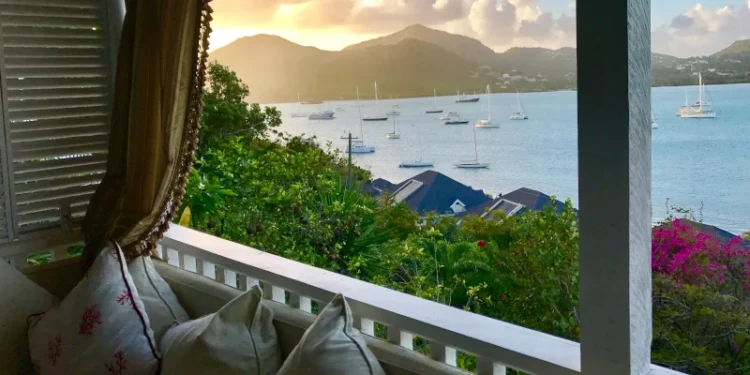Buying real estate overseas is fundamentally about diversification. This is true whether you buy for investment or for retirement and argues in favor of buying for retirement rather than renting.
Buying your new retirement residence overseas means moving money out of the United States and putting it into another market and, potentially, another currency.
Moving all your money out of the States and into a new retirement residence overseas doesn’t alone bring you the diversification you should be seeking right now. However, using some of your capital to purchase a retirement residence in the place where you want to live and putting other of your capital to work in another market (that perhaps uses a different currency) gets you not only diversification but also what amounts to a rent-free retirement.
That is, if you invest in the purchase of a piece of property where you eventually intend to live in retirement, when the day comes to flip that switch, your retirement residence is ready, waiting, and paid for… meaning no housing expense.
Housing is the biggest part of most retirees’ budgets. Take it off the table, and your cost of retirement becomes much more manageable.
Another advantage of buying your retirement residence overseas rather than renting it is that it helps you to “take the plunge.” It allows you to move your life forward, unequivocally, embracing the new adventure. Many who rent before they buy do so to be able to maintain a property back home, “just in case.”
While this can be sensible, it’s also an anchor, a drag. It can divide your attention and keep you looking backward instead of ahead to your new life. Keeping one foot on the pier and the other on the departing boat can land you in the drink. You may remain only partially committed, which will be a handicap.
The bottom line for the retiree-buyer is to follow your instincts, not only with regards to what to buy overseas but also when answering the question, should you buy at all?
You know yourself, your motivations and preferences, and how well you‘ve researched your chosen destination. You know your level of commitment, your level of readiness, and your tolerance for risk.
1.) How much space will you need?
Do you want an apartment or a house? One bedroom or two? (You probably won’t need more than two.) Two levels or only one? A guest room or even a guest house? Will you have guests often, for example? Will you want them to be able to stay with you, or would you prefer if they came and went from a hotel nearby?…
2.) Do you want a front yard, a back garden, or a swimming pool?
All of these things require care and maintenance…
3.) Do you want to be in the heart of downtown or out in the country?…
4.) Do you want a turn-key, a renovation project, or something in-between?…
5.) Do you like the idea of living in a gated community, or would you prefer a more integrated setting, such as a neighborhood where you could become part of the local community?
This is a key consideration. Going local means you have to learn the local language (if you don’t speak it already). Or perhaps you‘d prefer to be off on your own with undeveloped acres between you and your nearest neighbor. In this type of rural setting you will need to build your own in-case-of-emergency infrastructure…
6.) How will you get around?
Consider traffic patterns and transportation options. Where you base yourself determines whether you’ll need to invest in a car, which is an important budget consideration…
7.) Is the home well located?
Consider the convenience factor. How far is it to shopping, restaurants, nightlife, parking, and the nearest medical facility?
8.) Do you want a furnished home?
You may have no choice but to buy unfurnished (unless you buy, say, from another expat who’s interested in selling his place including all contents). Buying unfurnished means you‘ll need to purchase furniture locally or ship your household goods from home…
9.) What’s your budget?
This is the most practical guideline of all, of course. Be clear on your finances before you start shopping, and, if your budget is strict, don’t be tempted to consider properties outside your price point. You‘ll only be disappointing yourself unnecessarily…
10.) Finally, ask yourself what kind of view you‘d like from your bedroom window each morning.
This can be the most important and telling question of all, for it forces you to think very specifically about what’s important to you. Until next time,  Kathleen PeddicordFounding Publisher, Overseas Opportunity Letter
Kathleen PeddicordFounding Publisher, Overseas Opportunity Letter










